Attorney Says G.O.B.’s Attempt to Strong-arm B.S.I. Failed
Earlier this week, the High Court handed down a judgment in the case of Belize Sugar Industries Limited and the Corozal Sugar Cane Producers Association against the Attorney General, the Sugar Industry Control Board, the Minister of Agriculture and the Controller of Supplies. This was in direct relation to a claim that the two entities had successfully presented after having filed for an injunction. That injunction was to have the amended Sugar Industry Import/Export Regulation, or a Statutory Instrument that was introduced in May of 2023 halted. Senior Counsel Godfrey Smith, on behalf of the claimant, held a press conference today to share the implications of the regulation had it been passed. Essentially, the court found that the regulation was unconstitutional, that it breached the claimants’ right to work, to privacy, to protection of law. News Five’s Marion Ali filed this report.
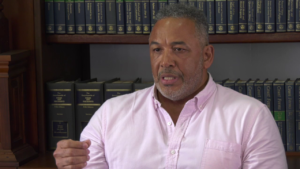
Godfrey Smith
Godfrey Smith, S.C., Attorney for A.S.R/B.S.I./C.S.C.P.A.
“The court struck down, in fact, it characterized portions of the regulations as obnoxious, saying that it did interfere with BSI’s right to information and privacy, that the regulations would interfere with BSI’s right to work, and it would interfere with its right to protection of the law, because it amounted to an overreach. The effect of the finding is that the government has used its legislative power in an invasive way, in a way that breach people’s, that the BSI’s right to its confidentiality and privacy of its commercial information.”
Marion Ali, Reporting
The Constitution of Belize allows the government to formulate regulations that interfere with a company’s rights, but it must be for the greater good of the people. And, even though the sugar industry is one of Belize’s income earners, the court found that the regulation was the equivalent of an abuse of power. Senior Counsel, Godfrey Smith explained the crux of the matter with one of the sections he argued against.
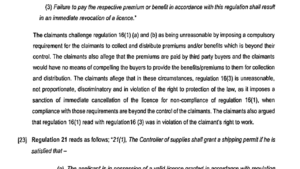 Godfrey Smith
Godfrey Smith
“The Sugar Industry Act and the Supplies Control Act already regulated export of sugar in Belize. All of a sudden, in 2023, the Sugar Industry Control Board and the Minister of Agriculture promulgated, brought into law, a new set of regulations that had at its core two fundamental things. 01:5The first is a requirement that if BSI wished to get a license to export sugar or to manufacture sugar, it had to disclose all contracts – all – to the S.I.C.B, Mr. Osorio and his group with all of its clients internationally. It also had to do that each time it applies for a shipping permit. There’s a requirement that each time you want to export sugar for each batch you have to apply for a shipping permit and if you haven’t made those disclosures you will not get a permit or you will not get your license or your export license can be revoked.”
Smith explained that the regulation also sought to impose on BSI a requirement to collect from Tate and Lyle in London any Fair Trade premium for sugar due and paid to associations. This is a matter that the claimants argued had nothing to do with them. The basis on which the claimants put forth their case was that the regulation was crafted so as to delve into B.S.I’s private commercial affairs and to force B.S.I to do the impossible – to pay Fair Trade premiums, which are not paid by them, but by the London-based company Tate and Lyle. Smith shared his candid view that the government abused its authority when it formulated the regulation.
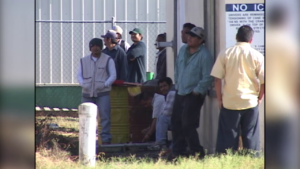
Godfrey Smith
“That piece of regulation was a clear, naked attempt by S.I.C.B – Sugar Industry Control Board and the Ministry of Agriculture to strong-arm BSI and force them to do what the law doesn’t allow. So, because the disputes have been ongoing and the government obviously must favor the cane farmers because they represent thousands of voters in the industry, it will never be a case where any government, red or blue, will ever side with a commercial entity, a multinational B.S.I./A.S.R, because they know where the votes are. And for that reason, they were prepared to use their sovereign legislative power in a heavy-handed, hand-fisted way to compel something like that. They were not entitled to compel. It was an abuse of authority. Nobody says you can’t regulate to assist here and there if you believe there is unfairness. But that is why there is a Constitution, which is the yardstick against which you gauge whether a particular piece of regulation or law has gone overboard. So you can’t use force.”
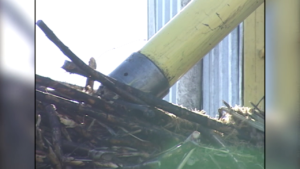 Smith pointed to the fact that a cane farmers association would join A.S.R./B.S.I on the claim is in itself an indication that the association did not trust the intention with which the regulation was drafted.
Smith pointed to the fact that a cane farmers association would join A.S.R./B.S.I on the claim is in itself an indication that the association did not trust the intention with which the regulation was drafted.
Godfrey Smith
“One of the cane farmers associations themselves – the Corozal Sugarcane Producers Association – I miss that, I overlooked that point. It’s an important point because they felt the actions of the government with this heavy-handed piece of legislation could mash up the industry and they would be at a loss if whatever draconian penalty is imposed on BSI for failure to comply with these excessive regulations – could mash up the industry – could hurt BSI, but if BSI is hurt, down would go the other associations. So that’s why they joined in that claim.”
The regulation can still be passed, but without the sections that the court found to be unduly unreasonable, which would make the regulation ineffective in what it seeks to do. The defendants have twenty-one days within which to file an appeal of the ruling. Marion Ali for News Five.





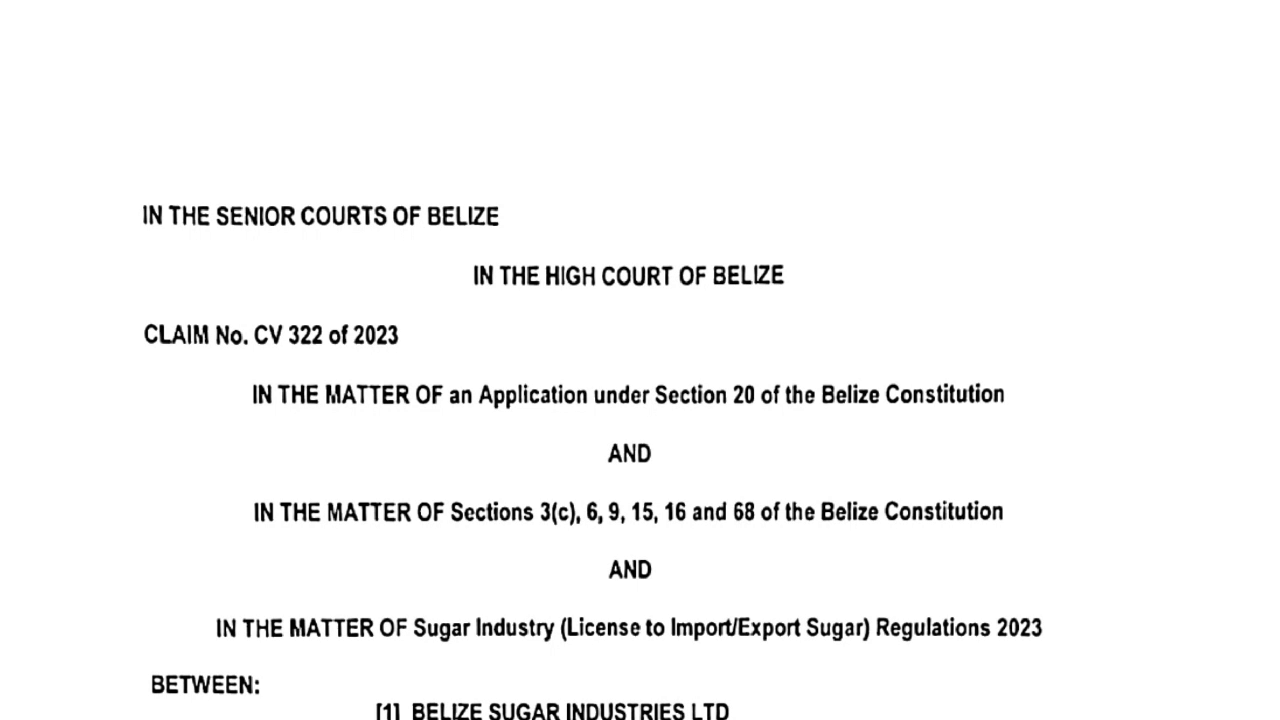
Facebook Comments